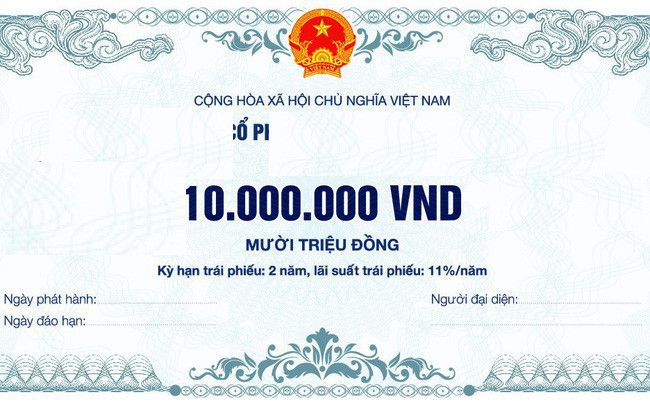(Vietnam) People often hear the word bonds or stocks in banks or stock exchanges. However, not all citizens understand what a bond is or what is the regulations surrounding a bond. Are bond and stock the same? What is the difference? In this article, we will clearly list all basic information about bonds in Vietnam.
Basic information about bonds
Bonds are one of the most popular securities instruments in the world. Bonds are seen as a form of steady return, portfolio diversification, and other investment benefits.
Bonds and Stocks are both popular forms of securities investment in the world. However, these two concepts are very different in nature.
A bond is essentially a term loan, in which a bondholder lends a loan to the bond issuer for a specified period and with a specified interest rate.
The bond issuer can be a business (the bond, in this case, is called a corporate bond), a government organization such as the State Treasury (in this case, it's called a Treasury bond), or the government (in this case it's called a government bond).
On the other hand, the bond buyers can be individuals, businesses, or governments. When buying bonds, the bond buyers will not have to bear any responsibility for the results of the borrower's loan use.

Accordingly, whether the business is successful or not using the loan money, the bondholder will not have to take any responsibilities, and if the business is dissolved or goes bankrupt, the business must pay the Bondholders first, and then distribute them to the Shareholders.
Types of bonds in Vietnam
The classification of bonds can be based on different characteristics such as yield, issuers, form, nature of the bond, level of payment security.
Regarding bond yield, there are 3 types of bond:
- Bonds with variable interest rates (floating interest rates): A type of bond where there will be different yields paid in different periods.
- Zero Yield Bonds: Bonds in which the buyer receives no interest. However, the buyer can purchase this bond at a lower face value (buy discount) and is repaid at par when the bond matures as specified.
- Fixed-rate bond: A type of bond whose yield is determined based on a fixed percentage (%) of par value.
Regarding issuers, there are Corporate bonds and Government bonds.
- Corporate bonds are bonds issued by joint-stock companies, limited liability companies established and operating under Vietnamese law in order to increase operating capital.
- Government bonds are bonds issued by the Ministry of Finance to raise capital for the state budget or mobilize capital for specific investment programs and projects within the scope of state investment.
Regarding the issuer's level of payment guarantee, there are 2 types: Secured bond and unsecured bond
- Secured bond: A type of bond in which the issuer uses a valuable asset as security for the issue. When the issuer becomes insolvent, the bondholder has the right to collect and sell the asset to recover the amount owed by the issuer.
- Unsecured bonds: The type of bonds issued without assets as security but only secured by the reputation of the bond issuer.
Regarding the nature of bonds, there are 2 types:
- Convertible bond: A type of bond issued by a joint-stock company, allowing bondholders to convert into common shares of the issuing company under the conditions specified in the bond issuance plan.
- Callable bonds: A type of bond that is issued with a provision that allows the issuer to buy back all or part of the bonds issued before the due date at a specified price on a specified date.
Regarding the form of bonds, there are registered bonds and anonymous bonds:
- Registered bond: A type of bond with the buyer's name on the bond.
- Anonymous bond: A type of bond that does not bear the buyer's name.
The content of this article is intended to provide a general guide to the subject matter. Specialist advice should be sought about your specific circumstances.


